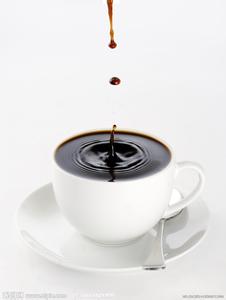Global Coffee Origin-Papua New Guinea

The frost in 1975 destroyed most coffee crops in Brazil, but stimulated the development of the coffee industry in Papua New Guinea. The Government has implemented a scheme to subsidize rural or collective landowners to create about 20 hectares of coffee plantations. This measure does increase the penetration of coffee in the local economy, resulting in an increase in the annual output of coffee.
Coffee producing areas of Papua New Guinea:
In PapuaNewGuinea, about 75 per cent of coffee products come from small local farms. Many farms reclaim land in the forest, and some are in the depths of the forest, almost isolated from the rest of the world. The country's coffee is of high quality because it is grown in the highlands of 1300m above sea level, 1,800 metres above sea level. Although coffee is also grown in some lowlands, the yield is relatively small. Most of the locally grown coffee is grown under natural conditions because of the problems and high costs of transporting chemical fertilizers and pesticides to the farm.
Although coffee trees grow vigorously in some places, the coffee beans harvested vary in size and size due to the lack of persistence of the growers. Among the high grades, AA is rare, and generally available are An and AB. The main characteristics of grade A coffee are: plump particles, light acidity, endless aftertaste after drinking.
Features of Papua New Guinea Coffee:
Flavor: varied, rich taste, full particles, a wide range of uses
Suggested baking method: moderate to deep roasting, used to prepare mixed coffee drinks with excellent results.
★★: good
The market for coffee in Papua New Guinea:
The coffee industry plays an important role in the country's economy. The government encourages planting by offering a minimum purchase price. The industry itself is controlled by the Coffee Industry Council (CoffeelndustryBoard). The commission is located in Goroka, in the eastern part of the island, while exports are handled by private companies.
The government has established a new level of quality, temporarily suspended the production of coffee such as Y, and no longer implemented the policy of "one grade, one price".
Important Notice :
前街咖啡 FrontStreet Coffee has moved to new addredd:
FrontStreet Coffee Address: 315,Donghua East Road,GuangZhou
Tel:020 38364473
- Prev

Global coffee producing area-Zimbabwe
Coffee cultivation in Zimbabwe began relatively recently, in the 1960s, when farmers in southern Africa set up coffee plantations. Coffee production in Zimbabwe: coffee cultivation in Zimbabwe is mainly concentrated in the eastern highlands near Mozambique, mainly in the Chimanimani Mountains and northward in Niyan.
- Next

Global coffee producing area-New Caledonia
New Caledonia (NewCaledonia) is a former French colony, with only 10 per cent of the land available for farming, with coffee and corn being its main crops. In 1860 missionaries introduced coffee from LaReunion. Coffee producing area of New Caledonia: the variety of coffee beans grown in New Caledonia is the extraordinary Robbite coffee. The specialty of New Caledonia Coffee
Related
- Detailed explanation of Jadeite planting Land in Panamanian Jadeite Manor introduction to the grading system of Jadeite competitive bidding, Red bid, Green bid and Rose Summer
- Story of Coffee planting in Brenka region of Costa Rica Stonehenge Manor anaerobic heavy honey treatment of flavor mouth
- What's on the barrel of Blue Mountain Coffee beans?
- Can American coffee also pull flowers? How to use hot American style to pull out a good-looking pattern?
- Can you make a cold extract with coffee beans? What is the right proportion for cold-extracted coffee formula?
- Indonesian PWN Gold Mandrine Coffee Origin Features Flavor How to Chong? Mandolin coffee is American.
- A brief introduction to the flavor characteristics of Brazilian yellow bourbon coffee beans
- What is the effect of different water quality on the flavor of cold-extracted coffee? What kind of water is best for brewing coffee?
- Why do you think of Rose Summer whenever you mention Panamanian coffee?
- Introduction to the characteristics of authentic blue mountain coffee bean producing areas? What is the CIB Coffee Authority in Jamaica?

